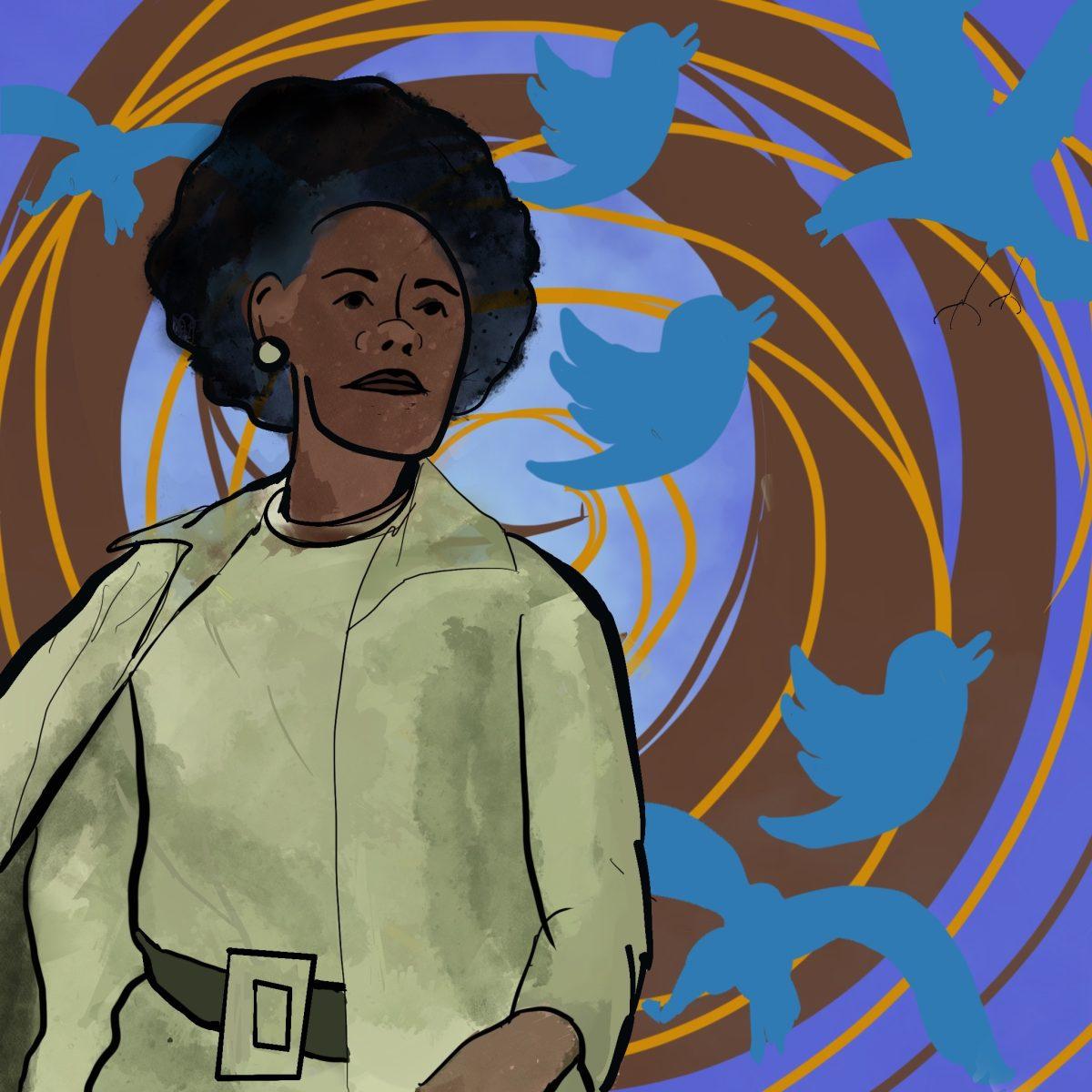
Illustration by Jovannah Olivares
We live in a world where it is really easy to cross the line between expressing a personal point of view and harming somebody else’s identity. Whether people intentionally or unintentionally cross the line or whether others excuse them, the outcome does not change.
Crossing that line can result in backlash online.
Not everybody receives the same treatment, or at least not everybody faces the same kind of backlash.
These online protests in the name of social justice, gender equity or social inclusion are just masks that cover up the true subconscious intentions of racism.
One example is the American black artist Lizzo using the word “spaz” in the song “GRRRLS ” on her new album “Special”.
The word in a slang connotation is used to define a jumpy person and it is used in African American Vernacular English as a definition of “going crazy,” according to the Urban Dictionary.
Beyoncé in her most recent album release “Renaissance” also used “spaz” in her track “HEATED”, which she removed after backlash online, according to an Aug. 3 Slate magazine article.
The word, typically meaning “spastic,” has different use and connotations in both American and British English.
However, the word has a more offensive connotation in British English because it specifically refers to an incopetent person, according to Collins Dictionary.
Hannah Diviney, a writer with cerebral palsy, wrote about the negative connotations surrounding “spaz” in a June 11 Twitter post that sparked the conversation.
Lizzo immediately changed her lyrics, according to a June 14 New York Times article.
“It’s been brought to my attention that there is a harmful word in my new song “GRRRLS”. Let me make one thing clear: I never want to promote derogatory language” Lizzo said in a June 14 tweet. She continued to write that she understood the connotations of harmful language, citing her own personal experiences “as a fat Black woman in America, I’ve had many hurtful words used against me.”
Even after the lyric change, the condemnation of Lizzo continued.
Diviney thanked Lizzo in a follow up for understanding the harm the word causes.
“I’m going to cry, Thank you so much for hearing us Lizzo and for understanding that this was only ever meant gently and being open to learning, it honestly means the world. You’re a real true ally,” she wrote in a June 13, tweet.
The reaction to situations like this vary depending on the ethnicity of the artist.
Another American artist, Taylor Swift, used the words “psycho” and “lame” in the song “Me!” from her 2019 album “Lover.”
However, the reaction was not the same as it was for Lizzo.
Swift’s lyrics gained attention after Michaela Rye, a disabled student from the Western University in London, wrote about Swift’s ableist slur explaining her feelings about the misuse of those words. Rye’s opinion went viral, and online debates started taking place on Reddit.
In a perfect world, Swift would have removed the word from her lyrics, but this never happened.
Both artists committed similar mistakes, but faced different reactions. The backlash against Lizzo has been louder and more aggressive compared to anything Swift received.
Comedian and host of “The Daily Show” Trevor Noah highlighted how Lizzo, one of the most inclusive artists and performers of our current generation, has been targeted and “hated” even after she removed the word from her song, according to a July 28 clip from “The Daily Show with Trevor Noah.”
Even when the consequences are warranted, they are unevenly applied.
Another example is during the 2022 Academy Awards ceremony when Will Smith got on stage and slapped Chris Rock in front of the audience.
This resulted in Smith being banned from the Oscars for 10 years.
It sounds fair. A violent action, especially on stage during an important ceremony, has its consequences.
However, the Academy Awards ceremonies have not always been fair in terms of inclusion, social justice and equity.
The hashtags “#WhiteOscars” and “#OscarsSoWhite” stormed the internet five years ago during the 87th and 88th Academy Awards ceremonies-respectively because of the inequality present in the cinema industry according to a Feb. 6, 2020 New York Times article.
During the 1973 Academy Awards ceremony, Sacheen Littlefeather, representing the Oscar winner Marlon Brando, gave a speech criticizing Hollywood’s cinematic representation of Native Americans.
The audience of the ceremony started mocking the woman on stage, and actor John Wayne had to be physically restrained from attacking Littlefeather on stage, according to an Aug. 18 Variety article. Nobody got banned or punished.
These are just a few examples showing that this is a problem going beyond music and cinema, and has deep roots.
Today, modern society tends to cover and mask racism using a politically correct shell.
It is easier to mask hate and racism towards people using a noble principle. This form of disguising allows people to hide their hate and racism in public, protecting their figure from the “racist” label.
The public can no longer tolerate racism, but they prefer an excuse for being racist in the name of something noble rather than deleting it from society.
Nobody wants to be a racist in 2022, especially if a person wants to maintain or gain popularity.
It is fundamental to understand what is behind a protest. It is critical to comprehend if what seems to be a noble and correct protest is actually a disguise for racism, intentionally or unintentionally.
People need to think with their heads rather than joining protests storming the web because it is the moment’s trend.